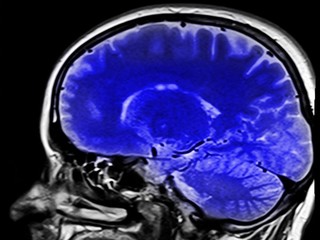Global AI in healthcare market expected to rise to $164B by 2030
The market size for 2023 was $10.31 billion
Read more... Ultrasound technology is not new: the technology has been used in medicine as far back as the mid-1950s. We know it's safe and we know it's one of the best ways to diagnose potential problems, especially those having to do with the heart and lungs.
Ultrasound technology is not new: the technology has been used in medicine as far back as the mid-1950s. We know it's safe and we know it's one of the best ways to diagnose potential problems, especially those having to do with the heart and lungs.
There are a couple of problems, though, with one of the biggest being a lack of access: according to the World Health Organization, upwards of 75% of the global population doesn't have any access to any kind of medical imaging, be it ultrasounds, MRIs, or cat scans. Even in in developed countries, like the U.S., Canada, and England, the wait times to get an ultrasound can be days, if not months.
That's where Caption Health comes in: the company wants to make ultrasound more ubiquitous, using AI to expand accessibility of ultrasound exams to include more healthcare professionals, not just those specially trained to handle the device.
"There's a very limited number of people that are trained to use an ultrasound in the US; there's less than 74,000 sonographers, and that image is happening after you've had chest pains and other things, but weeks, months, or years before you could actually have seen the issue that was being created in the heart, or the lungs, as we moved down that path eventually," Steve Cashman, the company's President and CEO, told me.
"What we're solving is an access to high quality, cost effective imaging early in the care cycle, or even in other alternative care settings, by making ultrasound easy to use by a nurse instead of just a sonographer after a catastrophic event."
Caption's goals go beyond just to make ultrasounds easier to use, though: the company wants to deliver faster results to the patient, something it's accomplishing that through a series of partnerships.
On Tuesday, Caption announced a partnership with Ultromics, an Oxford, England-based company that provides an AI-enabled cardiovascular imaging solution with the goal of reducing time to diagnosis, and improving patient outcomes. This follows a partnership with Butterfly Network in August, which put its software on that company's Butterfly iQ handheld whole-body ultrasound devices.
Founded in 2017, Ultromics' solution is called the EchoGo platform, which uploads echocardiograms to the cloud and analyzes them quickly and with greater accuracy than the human eye alone. It consists of two FDA-cleared products, the first being the EchoGo Core, which provides fully automated analysis of resting echos. The second product is the EchoGo Pro, which increases the sensitivity and specificity of detecting coronary artery disease on a stress echo.
While, in addition to its AI solution for guidance, Caption also has an interpretation algorithm, but the partnership with Ultromics goes a step further than what the company can already offer, Cashman explained.
"We spent five years building this AI, getting it through the FDA, proving it out with the military and a lot of other health institutions. Ultronics actually started the journey and Ross and the crew over there said, ‘Okay, once you have an image of the heart, how do you analyze all that, predict it, and do everything with it?’ There's all these finite measurements and things that are in the heart, so they've built AI to actually automate a bunch of sophisticated analytics on the heart function," he said.
"We scan a bunch of people to see how their hearts are doing, and we make it so it can be done in a GPs office, the home, and in other settings. Once we have that image, that's where Ultromics comes in: they built this algorithm out of years and years of data to see what the heart function is, including strain, and they provide an instantaneous, comprehensive report about what's going on."
The partnership with Butterfly will be available after the beginning of 2022, and the partnership with Ultromics should be on the market in Q1 of next year, or early Q2. Once all three companies and their services are linked, the process of getting an ultrasound and getting results, will go from taking an inordinate amount of time, and costing a lot of money, to taking just a few minutes at a fraction of the price.
That's why Cashman called this new partnership, "a watershed moment," and "honestly one of the biggest moments I've seen in healthcare," as it can have far reaching implications for for patients and providers all over the world.
"The biggest cause of death for those under five in Africa is pneumonia. In America, we wouldn't think about that. I mean, we know it kills older people but the reality is they don't know which kids have pneumonia in their lungs, gut if you find those things, they're easily treated. It's just a matter of finding them and managing them and getting through a lot of people," he said.
"Bringing imaging forward in the care cycle, much like pulse ox or temperature, is going to be the new norm in health care. Whether it's your lungs, your heart, your organs, your bladder, these are all things that we can look at with an ultrasound, even veins and clots. It's a game changer because you immediately get a picture of the problem."
The ultimate goal with these partnerships is to make it so that anyone, especially those 65 and older, who are most at risk, can easily get an image of their heart early enough that they can prevent problems down the road.
"We want to be the leader in early disease detection. We're not an AI software company, we're an early disease detection company that uses AI and software technology to empower clinicians. So, I'd love the four million nurses in the US to all have the ability to do an echocardiogram in any care setting; I don’t care if it’s CVS, Walgreens, Walmart, your house, your GP office, urgent care," said Cashman.
"When you step back about this, what's really powerful is, today, all of this work is being done by highly trained people, who there are very few of. We've taken all of that knowledge and built it within AI in the Caption platform, and now the Ultromics platform. We're just applying that knowledge so they don't have to go through that process and they can get to a clinical decision much quicker with the patient."
The market size for 2023 was $10.31 billion
Read more...At Culture, Religion & Tech, take II in Miami on October 29, 2024
Read more...The company will use the funding to broaden the scope of its AI, including new administrative tasks
Read more...

